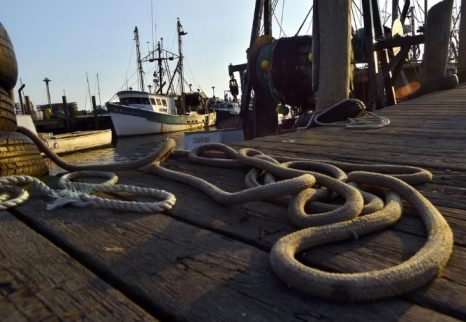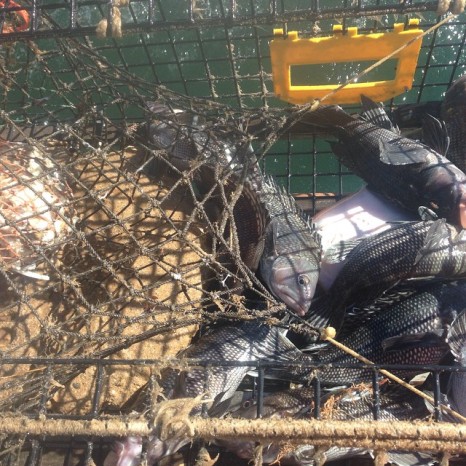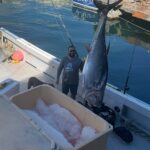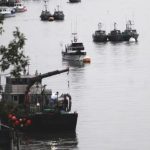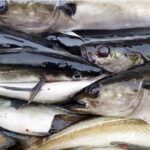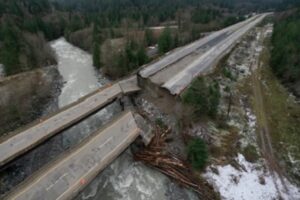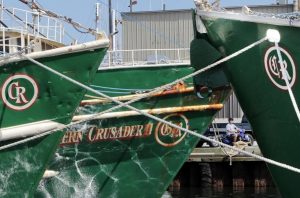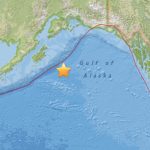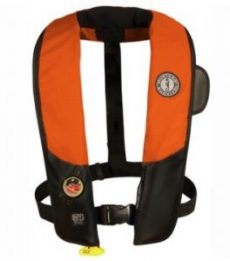Tag Archives: Black sea bass
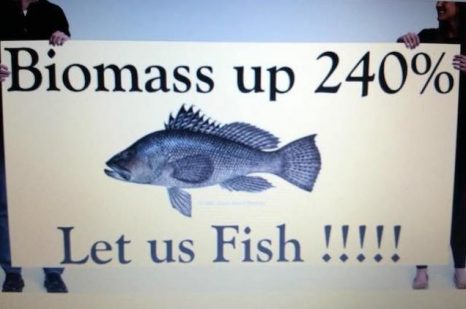
Black sea bass quota reduction for N.Y. has local lawmakers up in arms
The decision last month by the Atlantic States Marine Fisheries Commission to reduce New York’s black sea bass quota by 12 percent this year has anglers, state environmental regulators and local lawmakers up in arms. “This action discriminates against the State of New York. It would have a significant adverse effect on the Long Island economy,” State Senator Ken LaValle (R-Port Jefferson) and Assemblyman Fred Thiele (I-Sag Harbor) said yesterday in a joint statement. New York has joined Massachusetts, Rhode Island and Connecticut in an appeal,,, >click to read<09:12
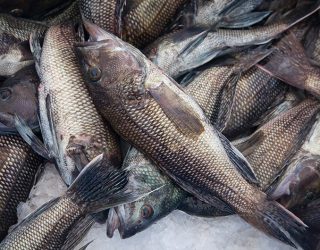
Proposed 2018 regulations on black sea bass and other commercially targeted fish covered at DMF public hearing.
With no proposed changes in conch fishing regulations on the agenda, the annual Division of Marine Fisheries (DMF) winter public hearing on proposed regulations was a relatively collegial gathering. A baker’s dozen of Island fishermen and stakeholders gathered at the Katharine Cornell Theater on Monday morning to weigh in on the potential changes the DMF is looking to implement in 2018. The main topic of conversation was changes to regulations for the commercial black sea bass fishery. >click to read< 19:00
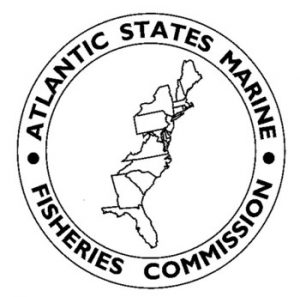
Hearings set for changes to black sea bass fishing
Interstate fishing managers are holding hearings in East Coast states about a plan to change the rules about one of the Atlantic Ocean’s most popular recreational fisheries. The Atlantic States Marine Fisheries Commission is considering changing the way it manages the recreational black sea bass fishery. The commission says the proposed changes could alter the way it allocates harvesting limits for the fish. The hearings began on Wednesday in Lewes, Delaware. click here to read the story 13:31

Losing hope for lobster south of Cape Cod
Tom Tomkiewicz remembers when there were so many lobster traps in Buzzards Bay it looked as if he could walk across the water on their buoys. Now, the 42-year-old lobsterman and his dwindling number of colleagues have to set their traps far out to sea, well beyond view of the coast, to catch the few lobsters that remain. “There’s nothing here,” said Tomkiewicz, one of only 35 Massachusetts lobstermen who still have permits to fish in the state and federal waters that stretch from Nantucket Sound to Long Island Sound. “It’s crazy.”,,, The steep decline has left regulators in a quandary click here to read the story 21:20
D.E.C. Ticketed Montauk Anglers for Dumping Fish
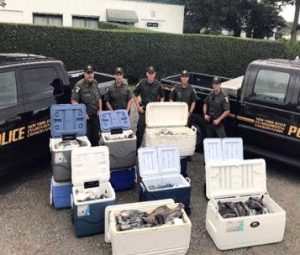 Marine enforcement officers from the State Department of Environmental Conservation, on patrol in Montauk Harbor on Aug. 31, saw what they estimated was hundreds of pounds of fish being thrown overboard from a Montauk party boat and wound up ticketing eight people, including the boat’s captain, Keith Williams. According to a D.E.C. spokeswoman, the officers approached the 75-foot Fin Chaser, based on Star Island, and ordered the anglers to stop what they were doing. Their orders were ignored, she said. The party boat’s customers were cited for possessing too many black sea bass and porgies, undersized black sea bass and summer flounder, and for failure to stop dumping upon command. click here to read the story 08:25
Marine enforcement officers from the State Department of Environmental Conservation, on patrol in Montauk Harbor on Aug. 31, saw what they estimated was hundreds of pounds of fish being thrown overboard from a Montauk party boat and wound up ticketing eight people, including the boat’s captain, Keith Williams. According to a D.E.C. spokeswoman, the officers approached the 75-foot Fin Chaser, based on Star Island, and ordered the anglers to stop what they were doing. Their orders were ignored, she said. The party boat’s customers were cited for possessing too many black sea bass and porgies, undersized black sea bass and summer flounder, and for failure to stop dumping upon command. click here to read the story 08:25
NY Commercial fishermen reeling from shutdown of fluke fishery
 It was the busy Labor Day Weekend, and Southold Fish Market owner Charlie Manwaring had been forced to stock his popular East End restaurant and market with out-of-state fluke for the first time in recent memory. “This is my backyard, and on a holiday weekend I have no fluke,” he complained to Rep. Lee Zeldin (R-Shirley) at a meeting Friday morning with two dozen angry Long Island fishermen and women at the Mattituck fishing dock. “I have to rely on Rhode Island and Jersey and Massachusetts and Carolina.”. “The fluke paid our bills,” said Cindy Kaminsky, who fishes commercially out of Mattituck.,,, “Nobody’s been willing to stand up and say to lawmakers, ‘You need to make this fair to New York fishermen,’ ” said Southampton attorney Dan Rodgers of New York Fish, an advocacy group. click here to read the story 17:42
It was the busy Labor Day Weekend, and Southold Fish Market owner Charlie Manwaring had been forced to stock his popular East End restaurant and market with out-of-state fluke for the first time in recent memory. “This is my backyard, and on a holiday weekend I have no fluke,” he complained to Rep. Lee Zeldin (R-Shirley) at a meeting Friday morning with two dozen angry Long Island fishermen and women at the Mattituck fishing dock. “I have to rely on Rhode Island and Jersey and Massachusetts and Carolina.”. “The fluke paid our bills,” said Cindy Kaminsky, who fishes commercially out of Mattituck.,,, “Nobody’s been willing to stand up and say to lawmakers, ‘You need to make this fair to New York fishermen,’ ” said Southampton attorney Dan Rodgers of New York Fish, an advocacy group. click here to read the story 17:42

Warming oceans: fish on the move
The oceans are getting warmer, and fish are adapting to rising ocean temperatures with their fins and swimming to waters that better suit their temperature preferences. Shifts in the distribution of important coastal fish species are resulting in changes to historical fishing options, new fishing opportunities and new fisheries management challenges.,, These northern shifts in fish populations have presented fisheries management challenges. Coastwide or regional Fisheries Management Plans (FMPs) are used to manage all of these species, but these FMPs have not always kept up with the changing distribution of these species. Take summer flounder and black sea bass as examples. click here to read the story 10:51
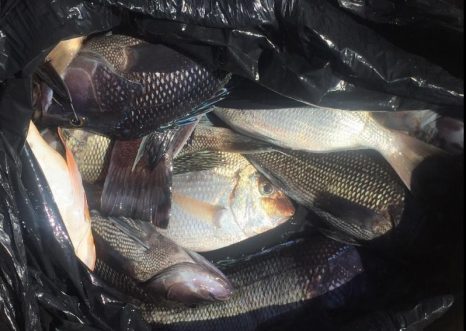
Black sea bass poachers on Buzzards Bay return with the season
Harbormaster and shellfish employees waded knee-deep in the Wareham River last weekend, fetching dead, floating fish and dropping them into black plastic trash bags. Each fish would serve as evidence. An angler had spied Environmental Police seizing 225 black sea bass from another boat and dumped his own illegal catch to avoid arrest. On the same sunny Sunday, beach-goers snapped cellphone pictures of boats that buzzed to the shoreline to drop off coolers, which Wareham Harbormaster Garry Buckminster believes were filled with illegal fish. The boats then motored back offshore to catch more. Its really a wild west in some of these areas, Buckminster said. Black sea bass season had officially begun. click here to read the story 09:12
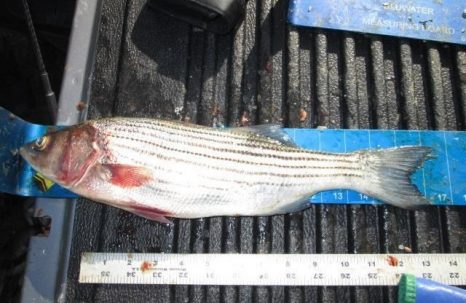
Recreational Fishermen caught with nearly 300 more black sea bass than allowed
On just the second day of the black sea bass fishing season, two boats of fishermen were caught by harbormasters with nearly 300 more of the black sea bass than allowed in the recreational limit. The Wareham Harbormaster Department alerted the Massachusetts Environmental Police to the two boats on Sunday at the Tempest Knob Public boat ramp. When officers inspected the first boat, which had four people aboard, they found multiple coolers that contained 225 more black sea bass than the recreational limit allows, Environmental Police said. Fifty-nine of those fish were smaller than the 15-inch limit. That boat also had 98 more scup than legal possession limit, as well as two undersized tautog and one 17-inch striped bass. Click here to read the story 17:25
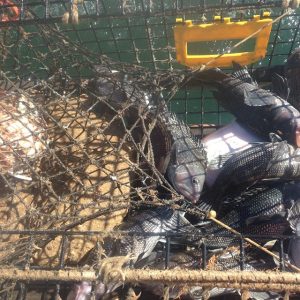
NMFS – Revised black sea bass quotas for the 2017 fishing year and projected specifications for 2018.
NMFS proposes revised black sea bass specifications for the 2017 fishing year and projected specifications for 2018. In addition, this rule proposes to remove an accountability measure implemented at the start of the fishing year designed to account for commercial sector overages in 2015. Updated scientific information regarding the black sea bass stock indicates that higher catch limits should be implemented to obtain optimum yield, and that the accountability measure is no longer necessary or appropriate. This action is intended to inform the public of the proposed specifications for the 2017 fishing year and projected specifications for 2018. Comments must be received by 5 p.m. local time, on May 1, 2017. continue reading the notice here 10:38
MAFMC & ASMFC Set Black Sea Bass Specs for 2017-18 – Benchmark Assessment Finds Resource Not Overfished & Overfishing Not Occurring
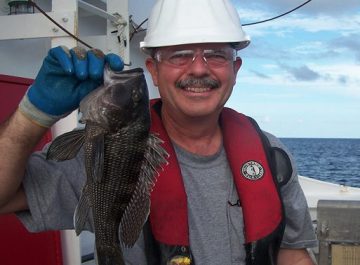 The Mid-Atlantic Fishery Management Council (Council) and the Atlantic States Marine Fisheries Commission (Commission) have approved revised specifications for the 2017 black sea bass fishing year as well as specifications for the 2018 fishing year for the Northern black sea bass stock (Cape Hatteras, North Carolina to the US-Canadian border). The revised specifications are based on the results of the 2016 benchmark stock assessment, which found the stock is not overfished and overfishing is not occurring. The approved limits are consistent with the recommendations of the Council’s Science and Statistical Committee. The Commission’s actions are final and apply to state waters (0-3 miles from shore). The Council will forward its recommendations for federal waters (3 – 200 miles from shore) to NOAA Fisheries Greater Atlantic Regional Fisheries Administrator for final approval. Read the rest here 11:23
The Mid-Atlantic Fishery Management Council (Council) and the Atlantic States Marine Fisheries Commission (Commission) have approved revised specifications for the 2017 black sea bass fishing year as well as specifications for the 2018 fishing year for the Northern black sea bass stock (Cape Hatteras, North Carolina to the US-Canadian border). The revised specifications are based on the results of the 2016 benchmark stock assessment, which found the stock is not overfished and overfishing is not occurring. The approved limits are consistent with the recommendations of the Council’s Science and Statistical Committee. The Commission’s actions are final and apply to state waters (0-3 miles from shore). The Council will forward its recommendations for federal waters (3 – 200 miles from shore) to NOAA Fisheries Greater Atlantic Regional Fisheries Administrator for final approval. Read the rest here 11:23
New Effort Underway To Study Black Sea Bass In Southern New England
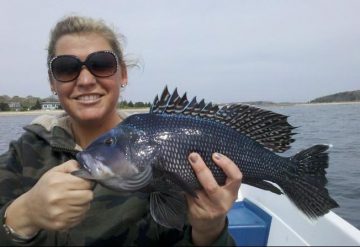 The Commercial Fisheries Research Foundation is kicking off a new project to collect data on black sea bass, a species that has moved north in search of cooler water. Catch limits for black sea bass in New England are a small compared to the Mid-Atlantic states, where the fish are typically found, according to Anna Malek Mercer, the foundation’s executive director. That means New England fishermen are throwing back very large quantities of black sea bass, she said. And it’s a highly valuable species. “So this will fetch at the dock between $4 and $7 a pound,” said Malek Mercer. “It’s super important in that way. Really could begin to fill some of this economic void caused by the downturns in things like ground fish and southern New England lobsters. ” The project will enlist Rhode Island fishermen to collect data on black sea bass. Read the story here 16:29
The Commercial Fisheries Research Foundation is kicking off a new project to collect data on black sea bass, a species that has moved north in search of cooler water. Catch limits for black sea bass in New England are a small compared to the Mid-Atlantic states, where the fish are typically found, according to Anna Malek Mercer, the foundation’s executive director. That means New England fishermen are throwing back very large quantities of black sea bass, she said. And it’s a highly valuable species. “So this will fetch at the dock between $4 and $7 a pound,” said Malek Mercer. “It’s super important in that way. Really could begin to fill some of this economic void caused by the downturns in things like ground fish and southern New England lobsters. ” The project will enlist Rhode Island fishermen to collect data on black sea bass. Read the story here 16:29
MAFMC and ASMFC Actions on Black Sea Bass, Bluefish, Scup and Summer Flounder
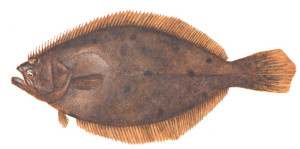 Last week the Mid-Atlantic Fishery Management Council (Council) and the Atlantic States Marine Fisheries Commission (Commission) reviewed previously implemented specifications for scup, black sea bass and bluefish fisheries and modified specifications for summer flounder. The Commission’s actions are final and apply to state waters. The Council will forward its federal waters recommendations regarding summer flounder specifications to NOAA Fisheries Greater Atlantic Regional Fisheries Administrator for final approval. For summer flounder, both groups approved a commercial quota of 5.66 million pounds and a recreational harvest limit of 3.77 million pounds for 2017, an approximate 30% decrease from 2016. This decrease in catch and landings limits responds to the findings of the 2016 stock assessment update, which indicates summer flounder has been experiencing overfishing since 2008. Read the rest here 12:06
Last week the Mid-Atlantic Fishery Management Council (Council) and the Atlantic States Marine Fisheries Commission (Commission) reviewed previously implemented specifications for scup, black sea bass and bluefish fisheries and modified specifications for summer flounder. The Commission’s actions are final and apply to state waters. The Council will forward its federal waters recommendations regarding summer flounder specifications to NOAA Fisheries Greater Atlantic Regional Fisheries Administrator for final approval. For summer flounder, both groups approved a commercial quota of 5.66 million pounds and a recreational harvest limit of 3.77 million pounds for 2017, an approximate 30% decrease from 2016. This decrease in catch and landings limits responds to the findings of the 2016 stock assessment update, which indicates summer flounder has been experiencing overfishing since 2008. Read the rest here 12:06
A dwindling North Fork fishing community urge emergency measures to keep black sea bass season open
 About a dozen of them met at a Mattituck marina Thursday to vent their frustration at the measure, which one fisherman said would reduce his income by 80 percent. Meanwhile, the state’s top fishing regulator wrote a letter to federal fisheries managers urging them to expedite an assessment to improve the data upon which local quotas are based. State regulators are pushing federal regulators to fix the problem. In a May 17 letter to top federal fishing regulators, Basil Seggos, acting DEC commissioner, noted the fishery has been rebuilt since 2009, yet fishermen “continue to struggle under low catch limits and restrictive measures while black sea bass appear to be more abundant than in any time in recent history.” Read the story here 14:41
About a dozen of them met at a Mattituck marina Thursday to vent their frustration at the measure, which one fisherman said would reduce his income by 80 percent. Meanwhile, the state’s top fishing regulator wrote a letter to federal fisheries managers urging them to expedite an assessment to improve the data upon which local quotas are based. State regulators are pushing federal regulators to fix the problem. In a May 17 letter to top federal fishing regulators, Basil Seggos, acting DEC commissioner, noted the fishery has been rebuilt since 2009, yet fishermen “continue to struggle under low catch limits and restrictive measures while black sea bass appear to be more abundant than in any time in recent history.” Read the story here 14:41
NMFS Announces 2016-2018 Regs for Summer Flounder, Scup and Black Sea Bass

More black sea bass added to quota
 The Atlantic States Marine Fisheries Commission’s (ASMFC) Summer Flounder, Scup and Black Sea Bass Management Board last week approved increases to the 2016 black sea bass commercial quota and recreational harvest limit (RHL). This means more black sea bass can be taken by commercial and recreational fishermen. The ASMFC announced that the commercial quota is now being set at 2.71 million pounds (was going to be 2.24 million pounds) and the RHL is being set at 2.88 million pounds (was at 2.33 million pounds). Read the rest here 17:22
The Atlantic States Marine Fisheries Commission’s (ASMFC) Summer Flounder, Scup and Black Sea Bass Management Board last week approved increases to the 2016 black sea bass commercial quota and recreational harvest limit (RHL). This means more black sea bass can be taken by commercial and recreational fishermen. The ASMFC announced that the commercial quota is now being set at 2.71 million pounds (was going to be 2.24 million pounds) and the RHL is being set at 2.88 million pounds (was at 2.33 million pounds). Read the rest here 17:22
Southern New England Fishermen try to preserve the lobster industry
 Lobster fishermen packed a hearing at the Department of Energy and Environmental Protection headquarters on Friday, and said pesticides in the sound and predators like black sea bass are killing the crustaceans. “New York will not resolve their and the fishermen are taking a blunt,” said Roger Frate, a fisherman from Darien. Marine experts and scientists with the Atlantic States Marine Fisheries Commission’s Southern New England Lobster Subcommittee considering potential management tools to help preserve the species, such as moratoriums and trap limits. Read the rest here 09:47
Lobster fishermen packed a hearing at the Department of Energy and Environmental Protection headquarters on Friday, and said pesticides in the sound and predators like black sea bass are killing the crustaceans. “New York will not resolve their and the fishermen are taking a blunt,” said Roger Frate, a fisherman from Darien. Marine experts and scientists with the Atlantic States Marine Fisheries Commission’s Southern New England Lobster Subcommittee considering potential management tools to help preserve the species, such as moratoriums and trap limits. Read the rest here 09:47
As Black Sea Bass Stake New England Claim, Fishermen are Concerned.
 As waters warm off the coast of New England, black sea bass are moving north and, fishermen say, threatening the region’s most valuable aquatic species: the lobster. The influx of sea bass — among a number of species that are appearing in greater numbers off of Maine and New Hampshire as ocean temperatures climb — has some fishermen and lobstermen saying the best solution is to ease restrictions on catching the newcomers. The sea bass prey on lobsters, a much more economically important commercial species and a key,,, Read the rest here 12:18
As waters warm off the coast of New England, black sea bass are moving north and, fishermen say, threatening the region’s most valuable aquatic species: the lobster. The influx of sea bass — among a number of species that are appearing in greater numbers off of Maine and New Hampshire as ocean temperatures climb — has some fishermen and lobstermen saying the best solution is to ease restrictions on catching the newcomers. The sea bass prey on lobsters, a much more economically important commercial species and a key,,, Read the rest here 12:18
Open Season: Black Sea Bass poaching problems persist in Buzzards Bay
 “The people we are catching are not fishermen, they are poachers,” said MEP Captain Pat Moran. “A fisherman fishes by the rules, respects the sea and what’s in it but these people have no respect for either. Catching the limit is not an option for them.” Even before the recreational season began on May 23, poachers were already greedily stealing sea bass. There are also comments on online fishing forums about the possibility of some of those involved in these cases poaching the sea bass to supply their own restaurants. Read the rest here 18:18
“The people we are catching are not fishermen, they are poachers,” said MEP Captain Pat Moran. “A fisherman fishes by the rules, respects the sea and what’s in it but these people have no respect for either. Catching the limit is not an option for them.” Even before the recreational season began on May 23, poachers were already greedily stealing sea bass. There are also comments on online fishing forums about the possibility of some of those involved in these cases poaching the sea bass to supply their own restaurants. Read the rest here 18:18
Fishermen want better fish counts for black sea bass – MRIP is not available during January and February???
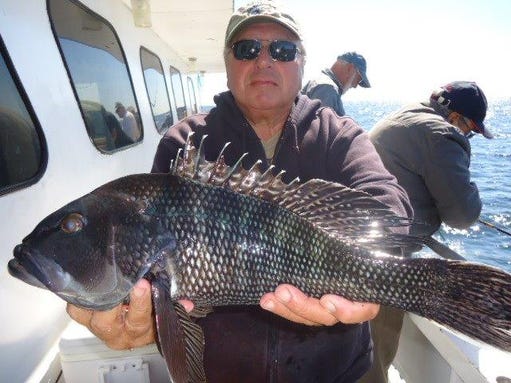 Fishermen are looking for better management of sea bass by fishery regulators after another winter closure of the fishery. “We have no way of knowing how much fish are being caught. We need to know so we can count them, and when we can’t do that we can’t open the season,” said Moira Kelly, a fishery policy analyst for the National Oceanic and Atmospheric Administration. Read the rest here 11:29
Fishermen are looking for better management of sea bass by fishery regulators after another winter closure of the fishery. “We have no way of knowing how much fish are being caught. We need to know so we can count them, and when we can’t do that we can’t open the season,” said Moira Kelly, a fishery policy analyst for the National Oceanic and Atmospheric Administration. Read the rest here 11:29
Eddie Emery sends this photo from Connecticut – Black Sea bass. Devouring everything they can
Gone Potting! Black Sea Bass Fishery Is Good Business
 On Tuesday morning, just a few minutes after 5 a.m., Lake Tashmoo is still and flat. There is a chill of autumn in the air, and in the water reflections of the stars glisten. In the distance a thin band of crepuscular light marks the eastern horizon. Read the rest here 09:14
On Tuesday morning, just a few minutes after 5 a.m., Lake Tashmoo is still and flat. There is a chill of autumn in the air, and in the water reflections of the stars glisten. In the distance a thin band of crepuscular light marks the eastern horizon. Read the rest here 09:14
Gulf of Maine: ‘Poster child’ for global warming
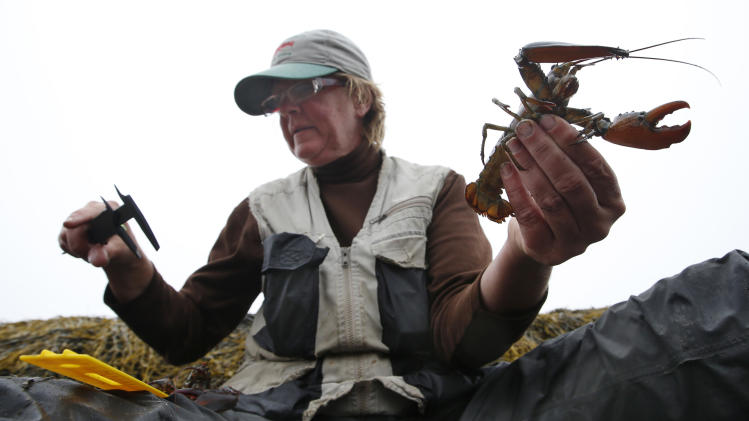 Long-established species of commercial fish, like cod, herring and northern shrimp, are departing for colder waters. Black sea bass, blue crabs and new species of squid — all highly unusual for the Gulf — are turning up in fishermen’s nets. The Gulf of Maine’s warming reflects,, Lots of info that appears to be new.BH Read the rest here 07:54
Long-established species of commercial fish, like cod, herring and northern shrimp, are departing for colder waters. Black sea bass, blue crabs and new species of squid — all highly unusual for the Gulf — are turning up in fishermen’s nets. The Gulf of Maine’s warming reflects,, Lots of info that appears to be new.BH Read the rest here 07:54
Maine proposes rules to manage growing black sea bass fishery. Black Sea Bass, ya say!!!!
 Maine fishery officials are proposing regulations to manage black sea bass, a species that is increasing in abundance in the state’s waters. Scientists say black sea bass are increasing in Maine’s waters because of temperature increase over the past 10 years. You don’t say! Read more here 15:14
Maine fishery officials are proposing regulations to manage black sea bass, a species that is increasing in abundance in the state’s waters. Scientists say black sea bass are increasing in Maine’s waters because of temperature increase over the past 10 years. You don’t say! Read more here 15:14
The First Indicator – Looking Back. The 2nd indicator, looking forward.
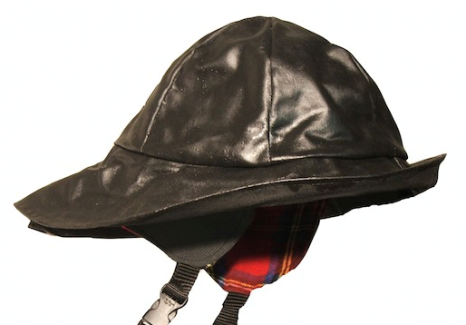 Let me say first off, no one ever accused me of being smart, not even me. I learned at an early age what a stupid son of a bitch was, and I learned it the hard way.,, “This is pretty dire,” said Russell Brown, deputy science and research director of the Northeast Fisheries Science Center, the branch of NOAA that did the research. Warning! Savory language ahead. Not to be read if offended easily! Read more here 09:06
Let me say first off, no one ever accused me of being smart, not even me. I learned at an early age what a stupid son of a bitch was, and I learned it the hard way.,, “This is pretty dire,” said Russell Brown, deputy science and research director of the Northeast Fisheries Science Center, the branch of NOAA that did the research. Warning! Savory language ahead. Not to be read if offended easily! Read more here 09:06
Bucking conventional wisdom, researchers find black sea bass tougher than expected – discard mortality rates
 The researchers had put the fish in the experimental group into one of four categories: those without visible injury; those with visible barotrauma; those with hook trauma (meaning the hook had caused significant internal injury); and “floaters” – those that couldn’t swim down into the water at all. To their surprise, the researchers found that approximately 90 percent of the fish,, Read more here phys.org 09:57
The researchers had put the fish in the experimental group into one of four categories: those without visible injury; those with visible barotrauma; those with hook trauma (meaning the hook had caused significant internal injury); and “floaters” – those that couldn’t swim down into the water at all. To their surprise, the researchers found that approximately 90 percent of the fish,, Read more here phys.org 09:57
Catch-22 hobbles sea bass fishery – a combination of regulatory red tape, inadequate science and cautious regulators.
 Black sea bass are everywhere, says charter boat captain Dorwin “Gov” Allen of Marstons Mills. They’re in Nantucket Sound, of course, but they are also in Cape Cod Bay, and 20 or more miles east of Chatham, where they were once rarely seen. They are even being caught in New Hampshire, once considered too cold, in numbers that surpass catches in North Carolina and Maryland. Read more@capecodonline 07:38
Black sea bass are everywhere, says charter boat captain Dorwin “Gov” Allen of Marstons Mills. They’re in Nantucket Sound, of course, but they are also in Cape Cod Bay, and 20 or more miles east of Chatham, where they were once rarely seen. They are even being caught in New Hampshire, once considered too cold, in numbers that surpass catches in North Carolina and Maryland. Read more@capecodonline 07:38
Cool Fish, Hot Water III – Black Sea Bass
 Previous posts in our Cool Fish, Hot Water series have introduced two of the species that are moving into the Gulf of Maine, Black Sea Bass as water temperatures rise: seahorses and longfin squid. While seahorses are still an occasional visitor, New England’s longfin squid fishery has taken off in response to squid’s increased abundance. This time, we’ll focus on another species with commercial potential—black sea bass. more@neoceanodyssey.org 12:37
Previous posts in our Cool Fish, Hot Water series have introduced two of the species that are moving into the Gulf of Maine, Black Sea Bass as water temperatures rise: seahorses and longfin squid. While seahorses are still an occasional visitor, New England’s longfin squid fishery has taken off in response to squid’s increased abundance. This time, we’ll focus on another species with commercial potential—black sea bass. more@neoceanodyssey.org 12:37
Back in Black: Black Sea Bass Stock is Rebuilt
The wait wasn’t easy but it’s over. NOAA Fisheries has declared the southern stock of black sea bass successfully rebuilt . With that, the combined commercial and recreational catch limit for this popular species has more than doubled, to 1.8 million pounds. The southern stock of black sea bass ranges from Cape Hatteras, NC to the Florida Keys. For the communities along that stretch of coast, the higher catch limit is extremely good news. more@commerce.gov 13:47
. With that, the combined commercial and recreational catch limit for this popular species has more than doubled, to 1.8 million pounds. The southern stock of black sea bass ranges from Cape Hatteras, NC to the Florida Keys. For the communities along that stretch of coast, the higher catch limit is extremely good news. more@commerce.gov 13:47






